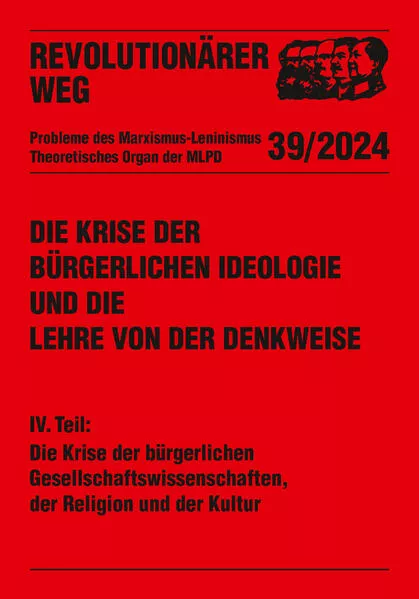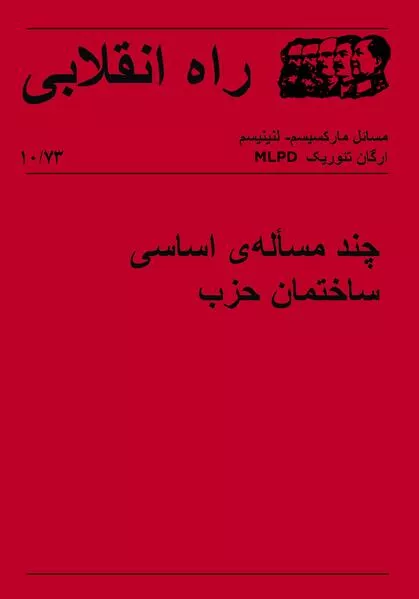
- Publikationen ca: 3
- Fragen & Antworten
Redaktionskollektiv Revolutionärer Weg
- Die Krise der bürgerlichen Ideologie und die Lehre von der Denkweise
- Revolutionärer Weg 10 - Einige Grundfragen des Parteiaufbaus (farsi)
Willi Dickhut was a child of the German working-class movement and helped shape it. The fight for a socialist future ran through his whole life. As a communist worker in the Weimar Republic, as an antifascist in the concentration camps of the Third Reich and in the illegal resistance, as a local politician and trade-unionist in postwar reconstruction – Willi Dickhut always relied on the working class wanting and being able to liberate itself.
From 1969 to 1991, Willi Dickhut was responsible for the Revolutionärer Weg (Revolutionary Way) publication series.
In Revolutionärer Weg today's social conditions are analyzed in order to work out the strategy and tactics of the struggle for genuine socialism.
Willi Dickhut was organized in the KPD from 1926 to 1966. When the party betrayed its revolutionary aims, there was only one thing for him to do: build a new type of revolutionary party. Such a party must learn to move and lead the masses.
His life's work spans almost a century of history of the revolutionary working-class movement in Germany. He decisively influenced the style of the MLPD. It was particularly important to him to develop critical, self-critical, and independently thinking and acting cadres as a dam against dogmatism, revisionism, or even a degeneration of the party.
He died on May 8, 1992 in Solingen – exactly 47 years to the day after the liberation from Hitlerite fascism.
Die Krise der bürgerlichen Ideologie und die Lehre von der Denkweise
Eine immer schnellere Abfolge von Krisen erschüttert die kapitalistische Gesellschaft: Corona-Pandemie, tiefe Einbrüche der Weltwirtschaft, sozialer Notstand, die begonnene globale Umweltkatastrophe, wachsende Weltkriegsgefahr oder die zunehmende Gefahr des Faschismus.
Revolutionärer Weg 10 - Einige Grundfragen des Parteiaufbaus (farsi)
1972, in einer Situation zahlloser Spaltungen in der sogenannten "marxistisch-leninistischen Bewegung" war die Vereinigung von KAB(ML) und KPDML(RW) zum KABD (Kommunistischer Arbeiterbund Deutschlands) ein zukunftsweisendes Signal! Es stand die Aufgabe, allseitig die Voraussetzungen für die Gründung einer marxistisch-leninistischen Partei zu schaffen.
Revolutionärer Weg 10 - Einige Grundfragen des Parteiaufbaus (farsi)
1972, in einer Situation zahlloser Spaltungen in der sogenannten "marxistisch-leninistischen Bewegung" war die Vereinigung von KAB(ML) und KPDML(RW) zum KABD (Kommunistischer Arbeiterbund Deutschlands) ein zukunftsweisendes Signal! Es stand die Aufgabe, allseitig die Voraussetzungen für die Gründung einer marxistisch-leninistischen Partei zu schaffen.


